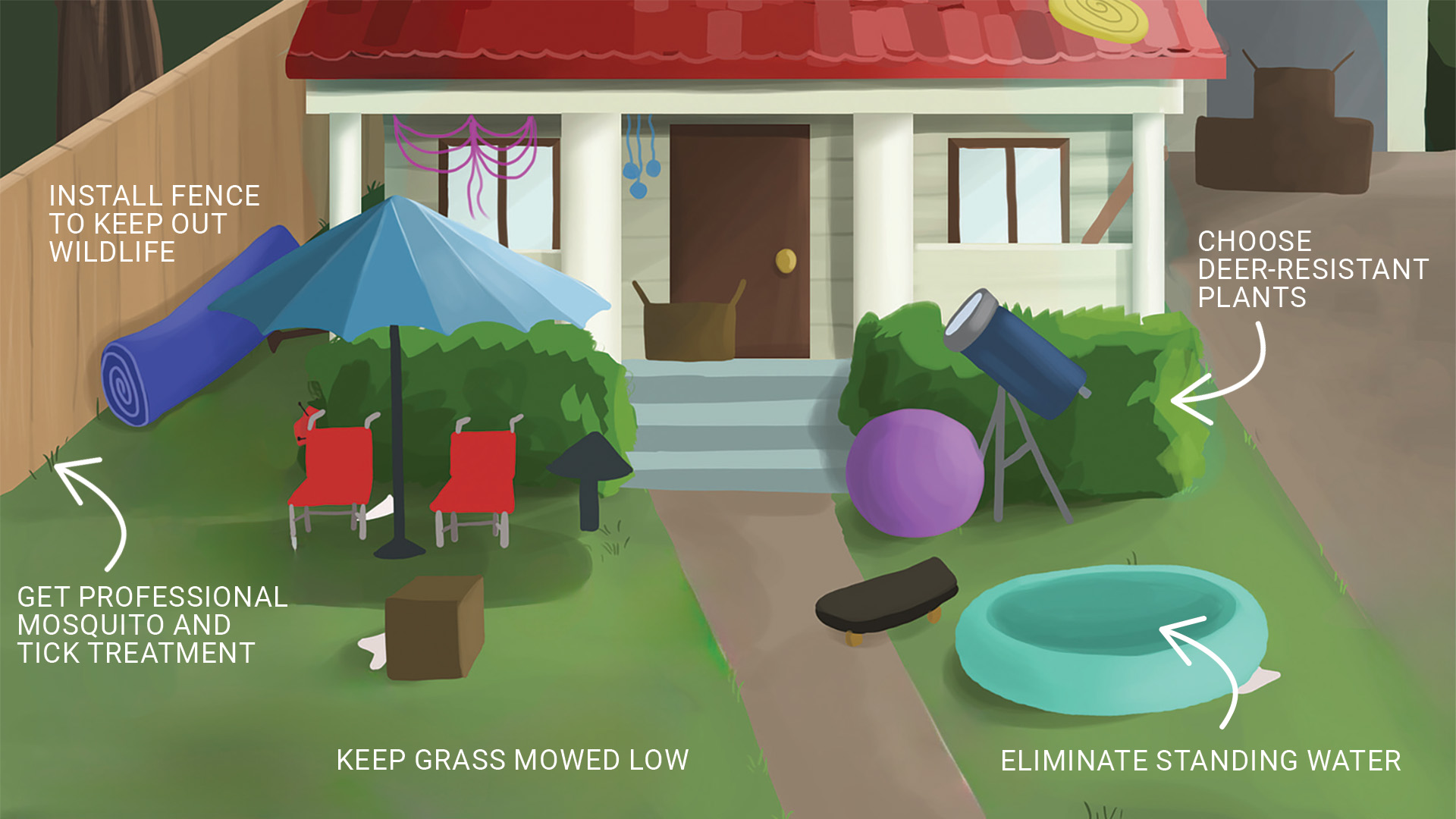While Lyme disease is the most well-known tick-borne illness we encounter and hear about in New England, it is not the only risk we face. In April, a confirmed case of the tick-borne Powassan virus was found in Sharon, Massachusetts. This potentially deadly illness is rarer than others caused by tick bites, but it’s not unheard of and can be far more dangerous.
According to the Rhode Island Department of Health, which has already logged one case this February in Kent County, there were 25 cases of Powassan reported in New England last year: ten in Massachusetts, five in Connecticut, five in Maine, three in New Hampshire and one in Vermont.
Symptoms of Powassan Virus Infection
Many people infected with Powassan do not have symptoms, but for those who develop illness, initial symptoms emerge between a week to a month after the bite of an infected tick and can include fever, headache, vomiting and weakness.
The disease usually progresses to meningoencephalitis, which is a swelling in the brain and the meninges (membranes that protect the brain and spinal cord). This life-threatening condition may include altered mental status, confusion, difficulty understanding or speaking, seizures and muscular weakness or paralysis. People with severe Powassan disease often need to be hospitalized, and survivors typically suffer from long-term effects.
Other Tick-Borne Diseases in New England
Beyond Lyme disease and the Powassan virus, other tick-borne diseases we see in our region include:
- Babesiosis: causes flu-like symptoms and can lead to severe illness.
- Anaplasmosis: causes flu-like symptoms and can progress to severe symptoms and complications.
- Tularemia: can affect skin, eyes, throat, lungs and intestines and requires treatment with antibiotics as soon as possible.
- Rocky Mountain spotted fever: can be life-threatening if not treated quickly with antibiotics.
- Borrelia miyamotoi: a relatively new disease that causes flu-like symptoms, which can progress to severe illness affecting the nervous system.
Prevention Is the Key
While some tick-borne diseases can be treated with antibiotics, there is no vaccine or treatment for Powassan, so preventing exposure to ticks is the best strategy to avoid this disease (and prevent the serious effects of others).
If you’ll be outside in an area where ticks are likely, take preventive steps, such as the use of insect repellent. To reduce the risk of ticks on your property:
- Seek professional extermination if you have a problem with mice and rats. Ticks pick up the diseases they carry from these and other animals.
- Consider erecting deer fencing or planting deer-resistant plants if deer are common in your area. Deer ticks carry diseases including Powassan. Fencing can also help keep other tick-carrying animals out of your yard, including bears, foxes, skunks and raccoons.
- Keep grass mowed low and clean up areas of brush and debris where ticks tend to linger.
- Eliminate areas of standing water on your property. Ticks like warm, moist areas, and mosquitoes lay their eggs in water.
- Call us to evaluate your property and recommend treatments to address ticks and/or mosquitoes.
Reclaim Your Backyard
We have the expertise to help you summer safely in your backyard. Through our specialized Mosquito and Tick Protection Plan™, we’ll assess your home and property to identify any breeding grounds or at-risk areas for these pests. Contact us today for protection that starts now and lasts until late fall. Special rates are available for existing members of our Braman MultiPest Plan.

